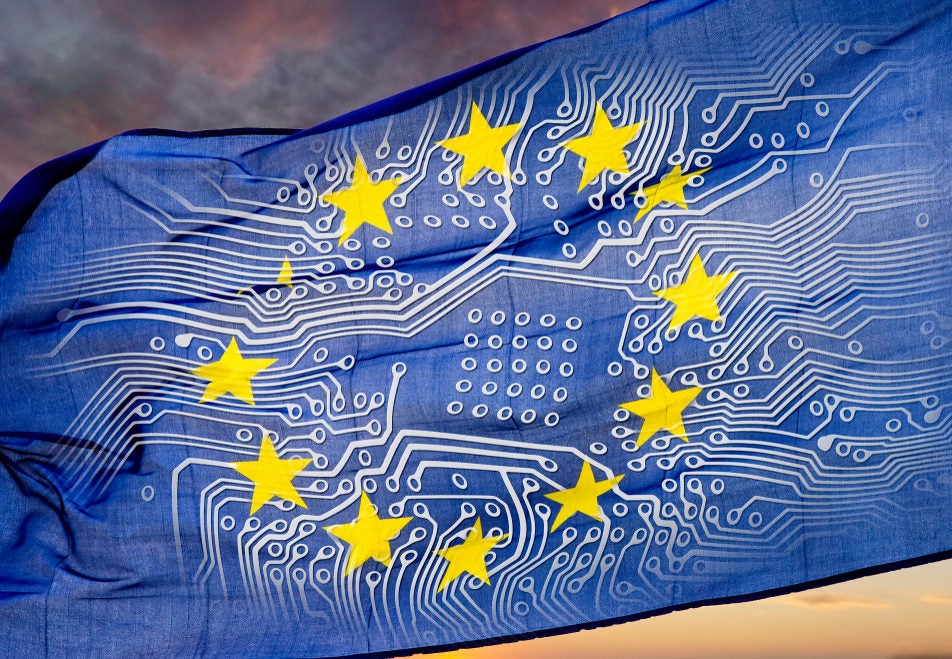
Lawmakers on both sides of the Atlantic have taken massive steps over the past 24 hours to reel in the power of Big Tech companies.
In Europe, the European Parliament voted with an overwhelming majority to move forward with the Digital Services Act (DSA), landing a huge blow to the online advertisement industry. While privacy campaigners welcomed the move, analysts worried that the bill may not be enough to cover Web 3.0 and the introduction of the metaverse.
In the States meanwhile, the Senate Judiciary Committee voted on Thursday on the American Innovation and Choice Online Act, which would prohibit tech platforms from “favoring their own products or services, disadvantaging rivals, or discriminating among businesses that use their platforms in a manner that would materially harm competition on the platform.”
Both bills, if passed, would force the leading tech platforms of the world to adjust their business models. They also highlight how lawmakers are increasingly putting more pressure on Silicon Valley’s goliaths, legislating on everything from acquisitions to payments.
A recent thematic research report from GlobalData suggests that more antitrust cases are coming as market watchdogs and lawmakers increasingly put their foot down.
“Many are accused of trampling on competitors to maintain their dominance,” the analysts wrote. “While regulators have attempted to take on Big Tech before, there is a growing consensus that new antitrust rules and approaches are needed to address the complexity of the digital economy.”
How well do you really know your competitors?
Access the most comprehensive Company Profiles on the market, powered by GlobalData. Save hours of research. Gain competitive edge.

Thank you!
Your download email will arrive shortly
Not ready to buy yet? Download a free sample
We are confident about the unique quality of our Company Profiles. However, we want you to make the most beneficial decision for your business, so we offer a free sample that you can download by submitting the below form
By GlobalDataEU moves to reel in Big Tech further with DSA
On Thursday January 20, the legislative arm of the European Union voted to go ahead with the draft of the DSA, which would significantly reel in Big Tech companies’ ability to track user data. It would also prohibit the posting of content that is illegal in specific member states, such as denying the holocaust in Germany.
Now that 530 European Parliament members have voted to move forward with the bill, with 78 voting against it and 80 abstentions, the EU can begin to negotiate the introduction of the bill with its member states.
“Much has changed in the 20 years since we adopted the e-commerce directive,” said Christel Schaldemose, the centre-left lawmaker from Denmark who has led negotiations on the bill.
“Online platforms have become increasingly important in our daily life, bringing new opportunities, but also new risks. It is our duty to make sure that what is illegal offline is illegal online. We need to ensure that we put in place digital rules to the benefit of consumers and citizens.”
The bill would make it easier for European citizens to give or deny consent for their data being tracked, making targeted advertising more difficult.
The DSA would also prohibit the “targeting or amplification techniques involving the data of minors of the purpose of displaying ads” as well as ads “targeting vulnerable groups”.
That would amplify the General Data Protection Regulation (GDPR) rules that have already landed dating platform Grindr in hot waters for how it allegedly shared data of LGBT+ users with advertisers in Norway, which is part of the European Economic Area.
The DSA would also introduce notice and action mechanisms to remove illegal products, services or content online. Hosting service providers would be forced to respond “without undue delay” on notices of such content. In short, the DSA is a bit of a blow to Big Tech.
“The companies that have developed these highly specific AI algorithms to deliver personalised ads and personalised content, which are very expensive and time consuming to create, are going to be devalued,” Lil Read, thematic research analyst at GlobalData, told Verdict. “So some tech workers that have worked long and hard on these might be less than pleased about this change.”
Despite this, DOT Europe – a lobbying group that represents the likes of Google, Facebook, Apple, Twitter, Yahoo and Amazon – said it welcomed the DSA vote.
“The DSA should be a major cornerstone of internet policy for decades to come,” said Siada El Ramly, director general of DOT Europe. “While we do not agree with every aspect of the European Parliament’s position, we welcome it as a step to further discussions on the file. We remain optimistic that the DSA will be fine-tuned in the trilogue process”.
A Google spokesperson added to Verdict: “We share the goal of MEPs to continue to make the internet safer for everyone and today’s vote on the DSA clears the way for a final agreement later this year, something we support. We will now take some time to analyze the final Parliament text to understand how it could impact our different users.”
Privacy advocacy groups also welcomed the European Parliament vote.
“We are thrilled to see that the majority of MEPs have spoken up to defend people against the greed of the surveillance ad industry,” said Jan Penfrat, senior policy advisor at European Digital Rights (EDRi). “We believe that banning surveillance ads altogether would have been a more effective strategy but prohibiting the use of sensitive data and outlawing dark patterns is certainly the next-best thing.”
Nevertheless, analysts noted that there is a risk that, while the DSA may help reel in what Schaldemose described as “the Wild West the digital world has turned into”, it may quickly become outdated.
“One thing that is possibly lacking from the DSA is considerations of how it will impact in the metaverse and Web.3.0,” Read said, explaining that the decentralised nature of Web.3.0, could prove even “harder to regulate.”
“So I think the DSA will have to evolve over time to accommodate Web.3.0,” she noted.
US senators back new antitrust bill
The stateside challenges to Silicon Valley’s market dominance are coming hard and fast these days. Earlier in January, the Federal Trade Commission relaunched its antitrust case against Facebook’s acquisitions of smaller rivals, with most state attorney-generals following suit with a similar legal challenge. On top of all this, the major tech platforms now have to worry about a potential new anti-monopoly bill coming their way.
On Thursday, the Senate Judiciary Committee voted today on the American Innovation and Choice Online Act. The bill passed its committee vote 16 to six despite Apple CEO Tim Cook apparently making last-minute phone pleas to senators, expressing his concerns regarding the bill.
He apparently told Republican senator Ted Cruz that he feared that the legislation would make it harder for Apple to uphold its privacy and security features, essentially repeating the same refrain Apple has voiced whenever it has faced a threat to its bottom line.
Cook certainly has reason to be concerned: the Act would make it more difficult for dominating Big Tech firms to discriminate against smaller rivals on their platforms. It would also mean they couldn’t prevent interoperability with other services and would stop them leveraging a competing company’s data.
The bill would also empower regulators with “strong, flexible tools” such as fines or “civil penalties, authority to seek broad injunctions, emergency interim relief, and potential forfeiture of executive compensation.”
“American prosperity was built on a foundation of open markets and fair competition, but right now our country faces a monopoly problem, and American consumers, workers, and businesses are paying the price,” said Amy Klobuchar, the Democratic senator who has spearheaded the the bill.
“As dominant digital platforms – some of the biggest companies our world has ever seen – increasingly give preference to their own products and services, we must put policies in place to ensure small businesses and entrepreneurs still have the opportunity to succeed in the digital marketplace. This bill will do just that, while also providing consumers with the benefit of greater choice online.”
The committee decision means that the Act is closer to a vote in the Senate, which is needed before it can become law.







